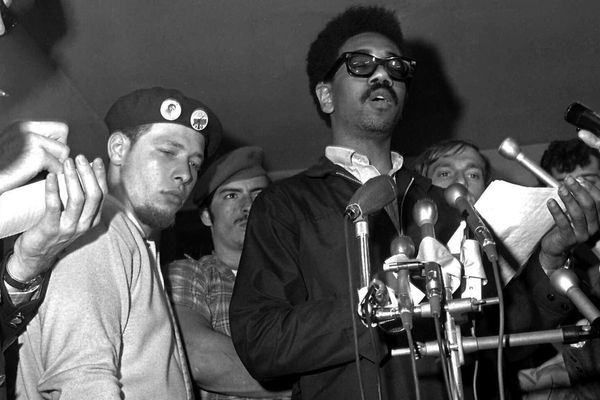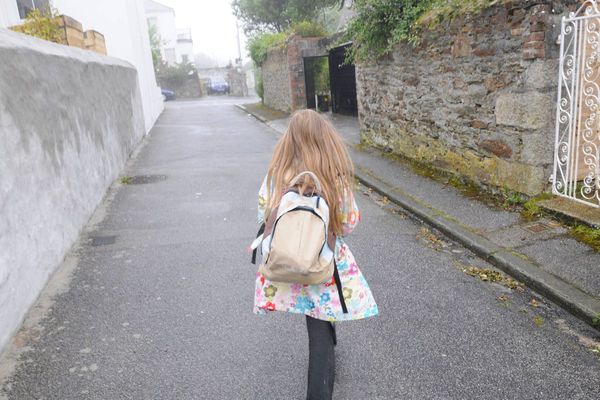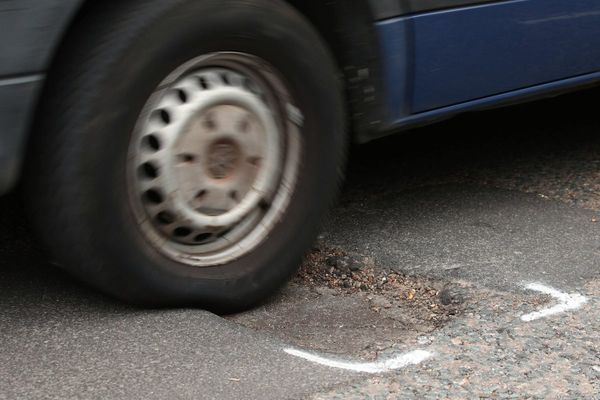Of all the places in the world to live, some people have chosen to make their home in the "hottest town in Australia", the dusty desert outpost of Marble Bar.
Despite an extreme heatwave that threatened to push the maximum temperature to 50 degrees Celsius this month, the West Australian town fell just shy of cracking the country's hottest December temperature record.
Marble Bar earned the title of Australia's hottest town when it recorded the longest heatwave — 160 days over 37.7 degrees — in 1923 and 1924.
It is still listed in the Guinness Book of Records.
Its record for the town's hottest Christmas Day was in 2018 when it reached 48 degrees.
Two days later, the Marble Bar mercury hit its record — a debilitating 49.6 degrees.
While the numbers are impressive, the Bureau of Meteorology instead crowns the Kimberley town of Wyndham as having the highest maximum annual temperature at 36.1 degrees.
But that is not nearly enough of a reason to cool Marble Bar locals' claims as Australia's hottest town.
Empty streets on Christmas Day
About 50 residents made the decision to stay in town and swelter through the festive period rather than follow most of the community who headed to the cooler coast or cities.
The streets were quiet as daytime temperatures remained in the low to mid-40s and many of the locals celebrated the holidays in the comfort of air-conditioned homes or with swims at local waterholes.
It is a fair assumption that spending summer in Marble Bar is not everyone's cup of tea but the heat-hardened community copes at the peak of summer.
Thomas Fox is the owner of the Ironclad Hotel, the town pub, and said fighting the heat was pointless.
Mr Fox said the community celebrated the first big rain of the season more than Christmas.
'Accept the fact that it's bloody hot'
Mr Fox's wife Annabelle Coppin owns and runs Yarrie Station, about 140 kilometres north-west of Marble Bar.
Yarrie has been in her family since it was pegged as a pastoral lease in the late 1800s.
Her days are usually spent outside inthe heat, managing resources, staff, and 5,000 cattle.
But it's not the intense heat she finds most challenging.
"The hardest bit is when it doesn't rain," she said.
"We have a drought management plan and everyone's got to stick to it. But there's nothing nice about it. It's just something you've got to deal with and do."
While working on the station is incredibly hard work, Ms Coppin can not imagine living anywhere else.
"I suppose I'll leave when someone carts me out in a box," she said.
Locals know how dangerous the heat can be
Marble Bar is a place of extremes, where the unforgiving desert heat is a point of interest on the weather map for people around the country.
For those unaccustomed, the heat can be suffocating.
But for those who live there it is proudly taken on the chin — inconsequential, but not underestimated.
Contrary to other advice we received from locals, Daniele Specogna often spends the hottest days of summer outdoors.
He resists turning on his air conditioning and believes in letting his body adjust to the heat.
When the temperature pushes higher he prefers to find a shady patch near a secluded waterhole and, with his feet dipped in the water, settle for the day with a book.
But Mr Specogna knows first-hand how dangerous the high temperatures can be after the heat nearly killed him.
He and Mr Fox drove out of town to go prospecting, but when they went separate ways in the bush Mr Specogna, car keys in pocket, became lost.
Mr Fox walked 20 kilometres back to town and sounded the alarm but by this stage night was falling.
The next day, with temperatures in their mid-40s, Mr Specogna buried himself in the sand to stay cool.
He said an eagle sat 10 metres away, watching him.
Rescue crews found him later that day.
Backyard fire burns church
Lighting fires in your backyard is seldom a good idea, but it can have serious consequences in the Pilbara's climate.
Now local folklore, Mr Specogna said he accidentally burnt down the disused 75-year-old Catholic Church in 2016.
Located on the edge of the township and once visible from his house, Mr Specogna was the last person to use the church.
He had been running classes there, teaching workshops to some of the town's children.
Before he knew it, the flames left the bounds of the backyard wire fence and, carried by the wind, coursed up the hill behind his house.
People from all walks of life
A master goldsmith and photographer from Italy, Mr Specogna retired to Marble Bar after more than 30 years working around the world.
For him, the small town not only affords him the peace and quiet of a life immersed in nature but a sense of community — a home away from his family back in Northern Italy.
He described Marble Bar, whose population hovers around 150, as a Goldilocks-sized town.
"It's beautiful, friendly, multicultural. That is unfortunately a trendy word but in the real meaning," he said.
"It's like extended family."







